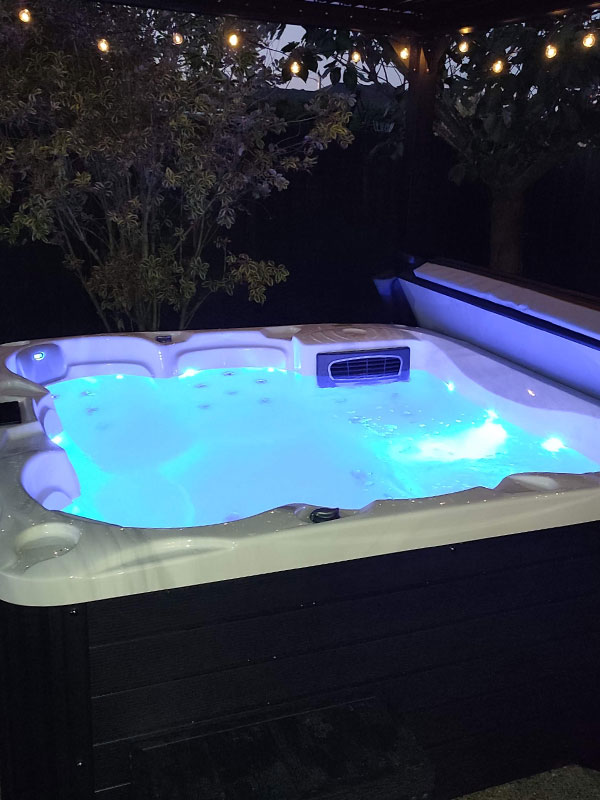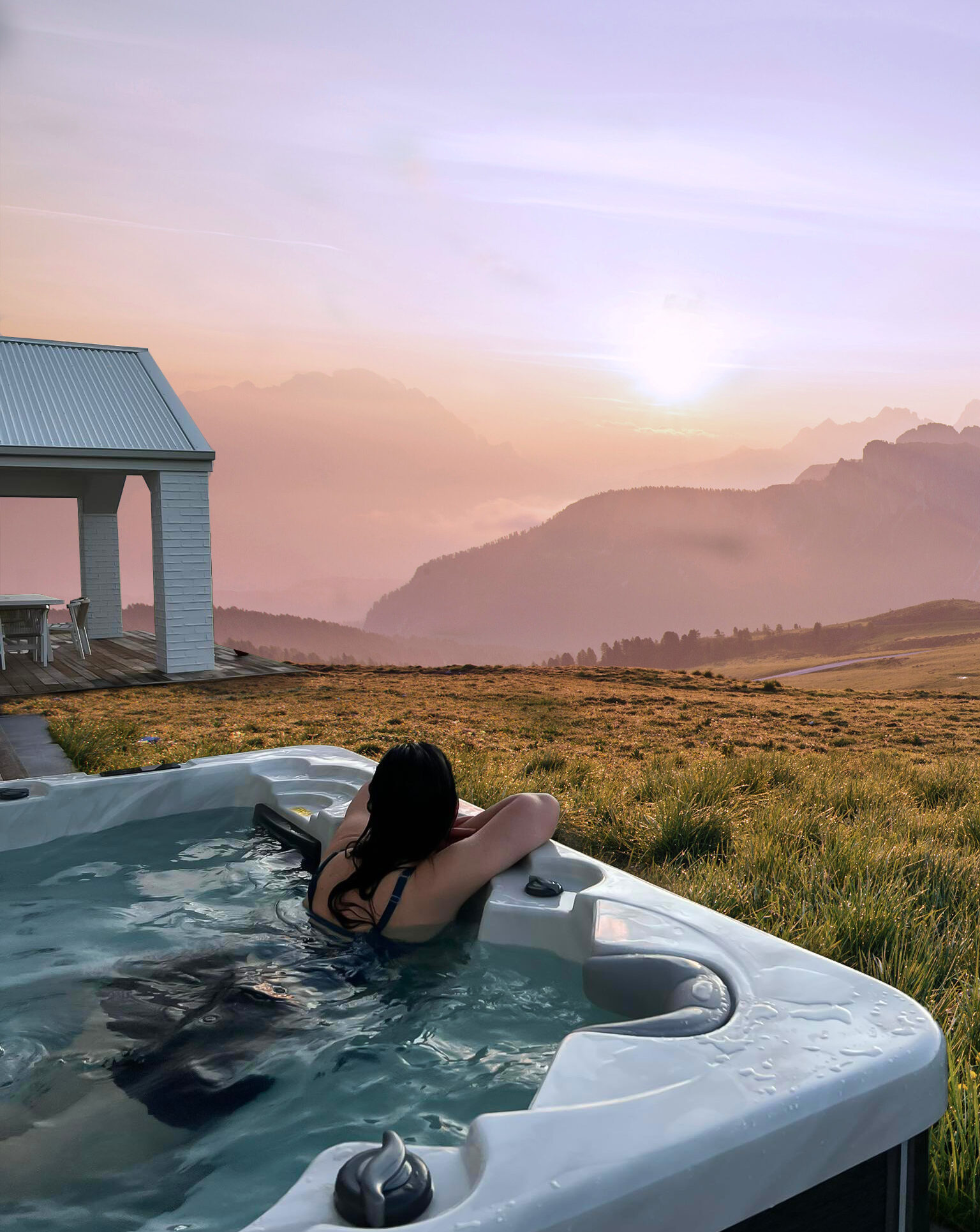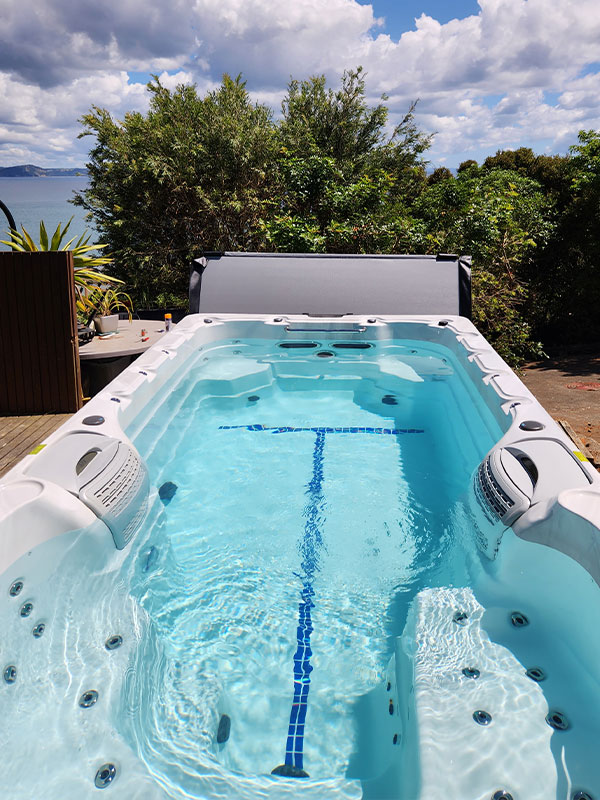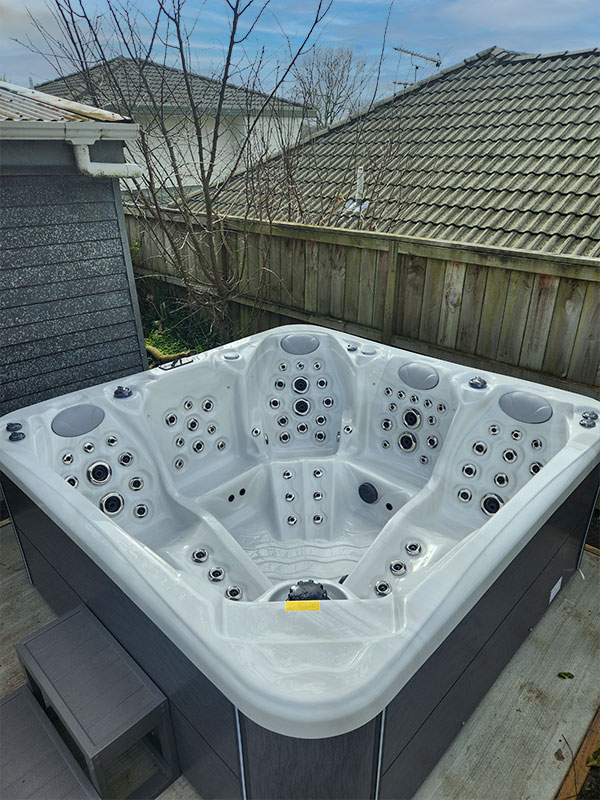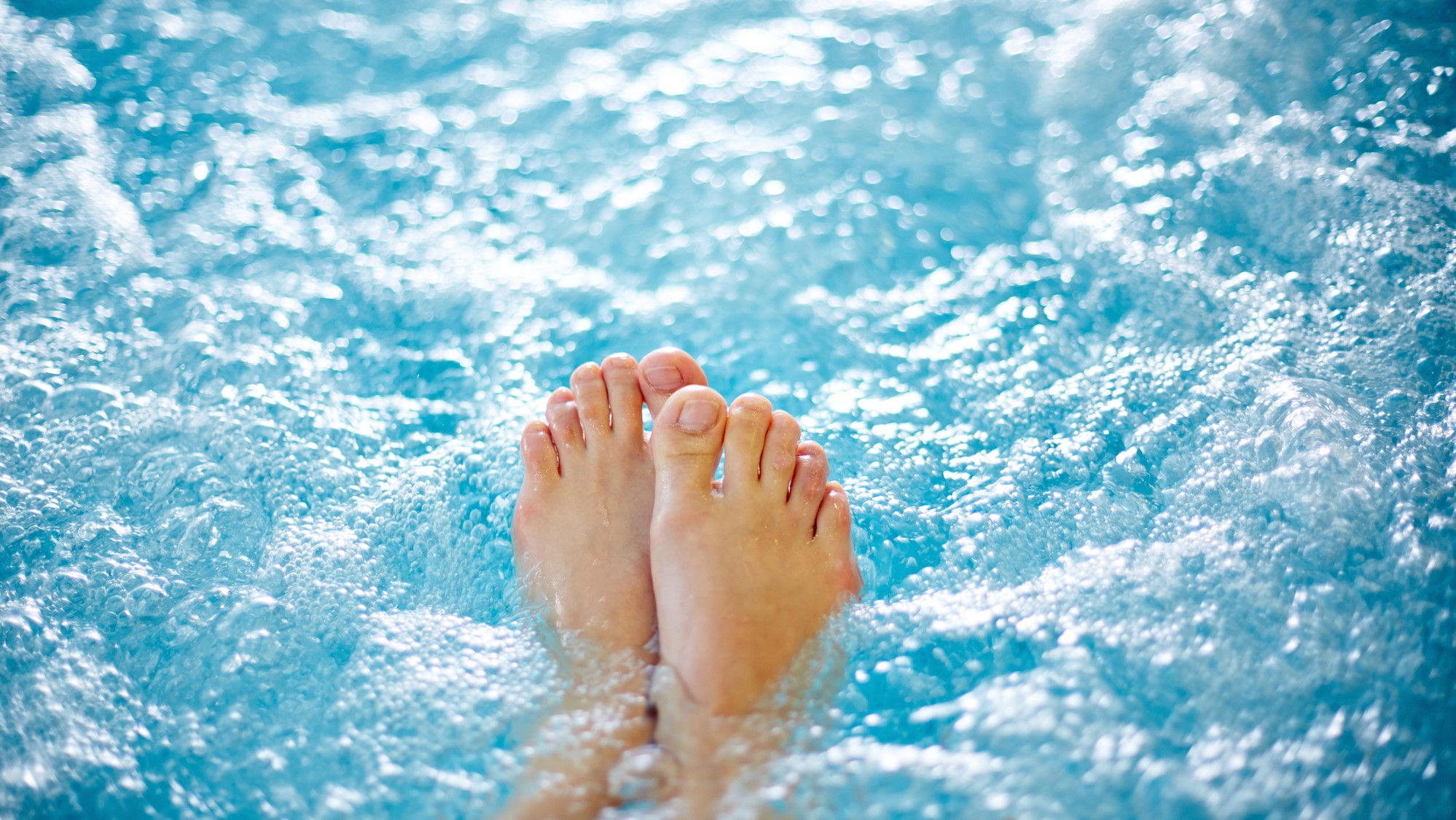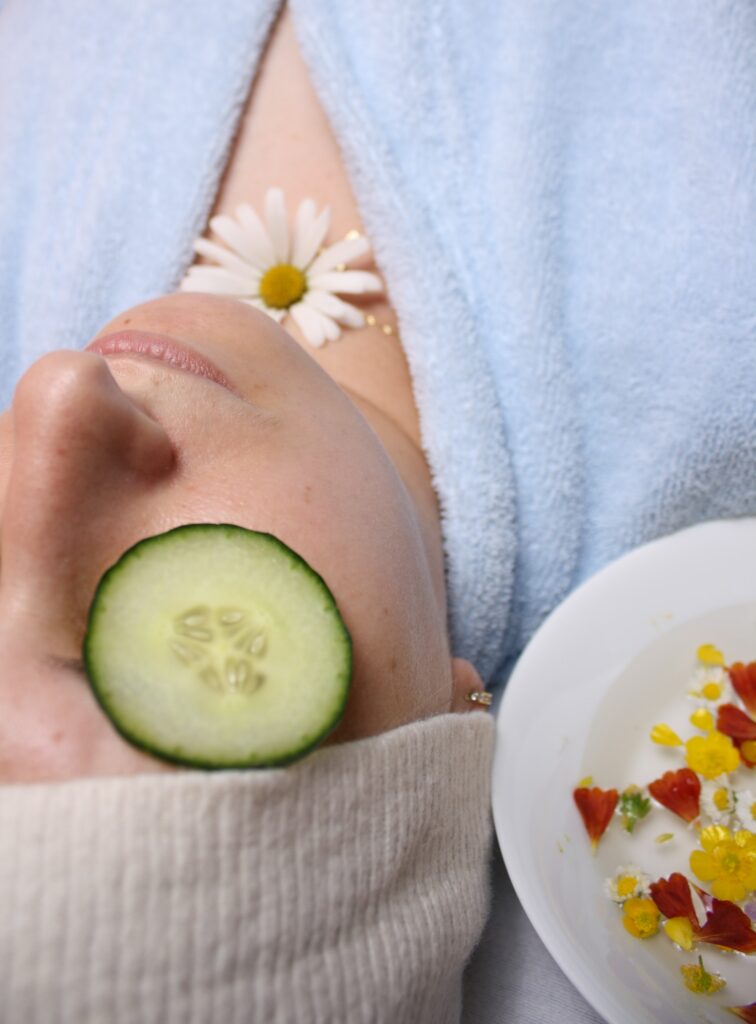
In the pursuit of well-being in New Zealand, the spa pool has emerged as a sanctuary where individuals can escape the hustle and bustle of daily life, embracing moments of tranquillity and self-care in the NZ environment.
At Jet Spas, we often get asked: “With our spa pools in NZ, how long should one stay in a spa to reap the maximum health benefits?” “How do you tell when you’ve been in there too long?” “What about if I’m pregnant, or with my kids?”
The answer lies in finding the delicate balance between indulgence and mindful self-awareness.
Finding the Optimal Duration:
The journey to relaxation begins with understanding the ideal duration for a spa session. While the Goldilocks zone typically falls around 90 minutes, it’s crucial to recognise the individual variability in preferences and health conditions.
Some may find solace in a quick 60-minute escape, while others may seek a more extended, immersive experience lasting up to 120 minutes. For those with hectic schedules, even a brief spa session can provide a much-needed respite from the demands of daily life.
On the other hand, a more extended spa pool retreat allows for a deeper sense of relaxation, enabling the body and mind to release the accumulated tension and stress of nz life.
Everyday People: Universal Guidelines for Temperature and Time
Regardless of age or pregnancy status, there are universal guidelines for spa temperature and duration. The following recommendations can serve as a general guide:
- Water Temperature: Keep it moderate and comfortable, ranging between 35°C to 38°C. Hot tubs and saunas operating at higher temperatures should be approached with caution, especially for extended periods.
- Duration: Limit spa sessions to 15–20 minutes for children, pregnant women, and individuals with specific health conditions. Regular breaks for hydration and cooling down are essential to prevent discomfort and overheating.
- Hydration: Staying well-hydrated is crucial for everyone using spa facilities. Encourage sipping water before, during, and after the spa session to prevent dehydration.
- Listening to the Body: Regardless of age or pregnancy status, paying attention to one’s body signals is paramount. If any discomfort, dizziness, or unusual sensations arise, it’s time to exit the spa and seek relief.
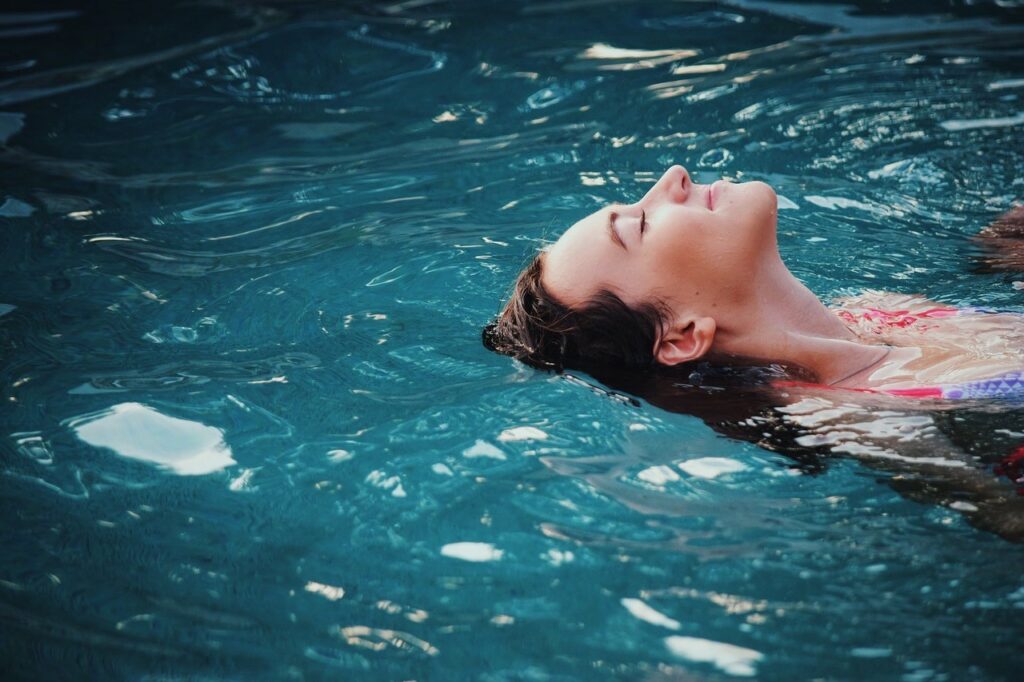
For those with different requirements
When it comes to using spa pools in New Zealand, it’s important to recognise that certain groups, such as children and pregnant women, require special consideration.
Let’s take a look into how long kids can safely enjoy spa activities and how expectant mothers can tailor their spa experiences for optimal well-being.
Children in the Spa:
While many spa facilities have age restrictions, some do provide family-friendly areas for kids to enjoy. However, the duration of their stay should be carefully monitored.
Experts generally recommend limiting a child’s time in the spa to 15–20 minutes, with a lower water temperature than that typically enjoyed by adults. The temperature of the water is crucial when it comes to children. The recommended water temperature for kids is around 35°C or lower.
While teens can enjoy spa pools, children 12 and under do not sweat enough to be able to cool their bodies down effectively. Prolonged exposure to high temperatures can lead to overheating, dehydration, and discomfort.
Parents should closely supervise their children and encourage regular breaks to cool down and hydrate.
It’s also advisable for parents to choose spa activities that are suitable for children, such as mild hydrotherapy or gentle water play, in order to get the most out of spa pools for their kids.
Infrared saunas, which operate at lower temperatures than traditional saunas, can be a safer option for families.
Pregnant Women and Spa Safety:
For expectant mothers, the spa pool can be a haven for relaxation in NZ, but certain precautions must be taken.
While many spa pool treatments are safe during pregnancy, it’s crucial to communicate openly with spa staff about your condition to ensure they can tailor the experience to your specific needs if you are at a commercial spa.
If you have your own spa pool at home, the recommended water temperature for pregnant women is no higher than 38°C. Excessive heat, especially in the first trimester, has been linked to an increased risk of birth defects.
It’s advisable to limit spa sessions to 15–20 minutes and avoid hot tubs or saunas with high temperatures. As with any medical condition, it’s essential for pregnant women to consult with their healthcare provider before indulging in spa activities.
This ensures that the chosen treatments align with the individual’s health and the unique needs of their pregnancy.
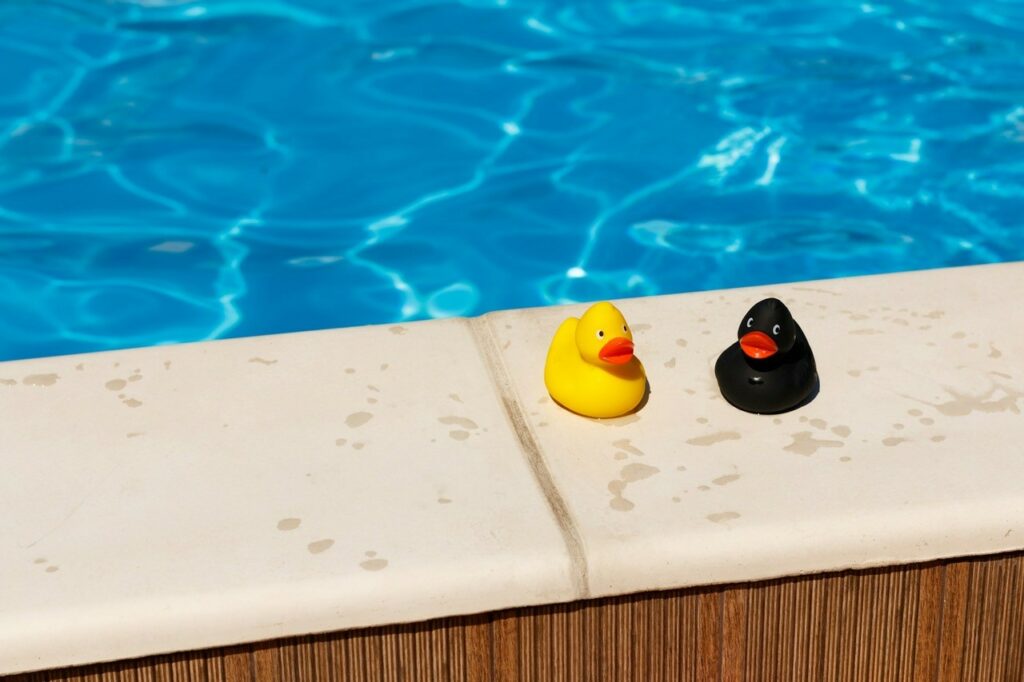
Health Benefits of Prolonged Spa Stays:
Beyond the escape from reality, prolonged stays in a spa offers a ton of health benefits that extend far beyond the immediate sense of relaxation. Let’s explore these advantages in greater detail:
Stress Reduction:
The extended time spent in a spa environment allows for a gradual unwinding of the mind and body.
Warm water, gentle massages, and calming treatments work in tandem to stimulate the production of endorphins – the body’s natural stress relievers.
This reduction in stress levels contributes to a profound and sustained sense of relaxation.
Improved Circulation:
Prolonged exposure to the soothing warmth of spa treatments has been associated with enhanced blood circulation.
The gentle pressure from water jets and massages facilitates the movement of blood, ensuring that oxygen and nutrients reach cells and tissues more efficiently. This, in turn, promotes cardiovascular health and overall well-being.
Muscle and Joint Relief:
For individuals grappling with muscle or joint pain, an extended spa pool session can offer much-needed relief from daily life in NZ.
The buoyancy of water reduces the impact on joints, while hydrotherapy aids in soothing sore muscles and alleviating discomfort.
The cumulative effect of these treatments can be particularly beneficial for those with chronic pain conditions.
Enhanced Sleep Quality:
The relaxation induced by a lengthy spa session has a positive impact on sleep quality.
Regular spa experiences have been linked to improved sleep patterns, helping individuals achieve a more restful and rejuvenating night’s sleep.
The calming effects linger beyond the spa visit, creating a conducive environment for better sleep hygiene.
Detoxification:
Sweating is one of the body’s natural mechanisms for eliminating toxins.
Extended time in saunas or steam rooms amplifies this process, promoting detoxification and supporting the body’s innate ability to cleanse itself.
Regular spa sessions contribute to a more efficient elimination of impurities, enhancing overall well-being.
Knowing When to Exit: Signs It’s Time to Step Out:
As with any indulgence, there comes a point when all good things must come to an end. Paying attention to the body’s signals is paramount to ensuring a positive and health-enhancing spa experience.
Here are key signs that indicate it’s time to step out:
Feeling Dizzy or Lightheaded:
While the warmth of a spa can be incredibly soothing, excessive heat can lead to dehydration and make you feel dizzy or lightheaded.
If you start experiencing these symptoms, it’s time to exit the spa and rehydrate.
Pruney Skin:
Wrinkled or pruney skin is a sign that your body has been in the water for too long. This may indicate overhydration, which can lead to electrolyte imbalance.
It’s recommended to limit your time in the water and take breaks to rehydrate.
Nausea or Discomfort:
If you begin to feel nauseous or uncomfortable, it’s essential to exit the spa immediately.
Overexposure to heat can lead to heat-related illnesses, and it’s crucial to prioritise your well-being.
Fatigue:
Prolonged spa sessions can be physically demanding. If you find yourself feeling overly tired or fatigued, it’s a clear sign that your body needs a break.
Listen to your body and take the time to rest.
Irritation or Redness:
If you notice skin irritation or redness, it could be a sign of sensitivity to spa chemicals or excessive heat.
Leaving the spa and rinsing off can help prevent skin issues.
Finding the right balance for your NZ Spa Pool
In the world of spas, finding the right balance is key. A well-tailored spa session, neither too short nor too long, can unlock a myriad of health benefits for both the body and mind.
Pay attention to the signals your body sends, and don’t be afraid to customise your spa experience based on your personal needs.
Remember, the goal of a spa session is not just to escape reality momentarily but to emerge from it with a renewed sense of well-being.
By understanding the optimal duration, embracing the health benefits, and recognising the signs that it’s time to exit, you can make the most of your spa experience and embark on a journey towards a healthier, more relaxed you.
Whether you’re a parent introducing your child to the world of relaxation or an expectant mother seeking serenity, the spa is a versatile tool that, with mindful consideration, can cater to the unique needs of every individual, ensuring a great time of relaxation and self-awareness.
Let us answer any questions you may have at Jet Spas – with flexible shipping, we can deliver your spa pool directly to your house and have it positioned into place, anywhere in NZ.
Auckland | Hamilton | Tauranga | Whakatāne | Rotorua | Taupō | Gisborne | New Plymouth | Napier | Hastings | Whanganui | Palmerston North | Wellington

